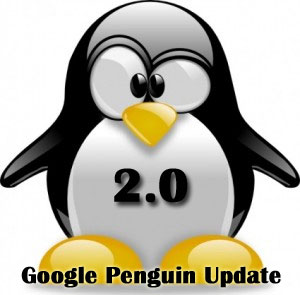 The release of Penguin 2.0 occurred on Wednesday, 22 May 2013. There were many rumours that the changes would be huge. Matt Cutts suggested that there would be major changes. The suggestion was that these changes would affect your site more than the previous updates.
The release of Penguin 2.0 occurred on Wednesday, 22 May 2013. There were many rumours that the changes would be huge. Matt Cutts suggested that there would be major changes. The suggestion was that these changes would affect your site more than the previous updates.
Your SEO Company could have a look at the weather station to see what the update has affected in general. You would be able to see whether the predicted changes were as huge. The MozCast data would give you a reasonable overview.
The MozCast Data and Penguin
MozCast works with recorded temperature, which is the algorithm “flux.” According to the MozCast there was a significant temperature rise when Penguin 1.0 was released. The next temperature increase was with the Panda #20 release.
With all the hype, the outcome is that the effect of Penguin 2.0 is about the same as the Panda #20 release. The data shows that there was definitely an update. However, the impact it had up to this point has not been as severe as the predictions made by Google.
Google claims that the impact of Penguin 2.0 on the US / English searches were about 2.3 per cent. This impact is not as severe as it was with Penguin 1.0, which showed the impact on searches at 3.1 per cent.
The Impact on Keywords
Mozcast ran a keyword temperature analysis over twenty industries. The seven days prior and including the roll out of Penguin 2.0, showed the temperature of the different categories.
The average temperature for Retailers and Real Estate was over thirty per cent higher than the average temperatures. The average temperature for other industries ranged from thirty per cent down to -3.7 per cent for Computers and Consumer Electronics.
Tracking the Sub-Domains
According to Mozcast, the day after Google released Penguin 2.0, twenty sub-domains showed a change in their SERPs. The following list comes from Mozcast tracking.
Sub-Domains with Increased SERPs
- en.wikipedia.org – 5.66% (+0.29%)
- www.youtube.com – 2.22% (+3.11%)
- www.facebook.com – 1.49% (+6.05%)
- twitter.com – 10.84% (+4.77%)
- www.webmd.com – 0.58% (+0.37%)
- pinterest.com – 0.58% (+1.87%)
- www.walmart.com – 0.52% (+1.24%)
- www.tripadvisor.com – 0.49% (+4.54%)
- www.foodnetwork.com – 0.47% (+0.45%)
- www.ebay.com – 0.44% (+1.98%)
- www.target.com – 0.38% (+1.72%)
- popular.ebay.com – 0.37% (+0.58%)
- www.huffingtonpost.com – 0.36% (+2.12%)
- www.overstock.com – 0.33% (+3.27%)
Sub-Domains with Decreased SERPs
- www.amazon.com2.35% – (-0.75%)
- www.yelp.com – 1.35% (-8.11%)
- allrecipes.com 0.47% – (-0.44%)
- www.mayoclinic.com – 0.41% (-0.76%)
- www.yellowpages.com – 0.37% (-4.37%)
- www.indeed.com – 0.32% (-0.32%)
The list indicates that www.yelp.com was affected the worst, while Twitter had the highest percentage.
Analyses from other Sources
Analysis from SearchMetrics and GetStat.com support the Mozcast analysis. The outcome of the analyses is that, changes for big brands were worse than for most sites on the Internet.
In the light of this, there is confirmation that Google did roll out an algorithm update. It has however, not been as big an update as Google predicted. For an SEO agency, though, it is important to keep monitoring the situation and keep up the strategies which Penguin 1.0 and Panda enforced.
